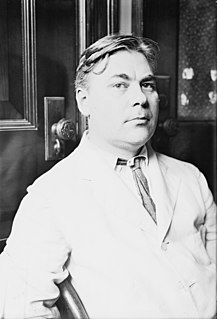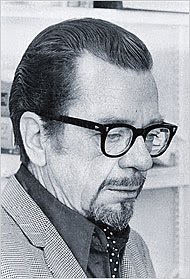A Quote by Honore de Balzac
What moralists describe as the mysteries of the human heart are solely the deceiving thoughts, the spontaneous impulses of self-regard. The sudden changes in character, about which so much has been said, are instinctive calculations for the furtherance of our own pleasures. Seeing himself now in his fine clothes, his new gloves and shoes, Eugène de Rastignac forgot his noble resolve. Youth, when it swerves toward wrong, dares not look in the mirror of conscience; maturity has already seen itself there. That is the whole difference between the two phases of life.
Quote Topics
About
Been
Between
Calculations
Changes
Character
Clothes
Conscience
Dares
Deceiving
Describe
Difference
Fine
Forgot
Gloves
Heart
Himself
His
Human
Human Heart
Impulses
Instinctive
Itself
Life
Look
Maturity
Mirror
Much
Mysteries
New
Noble
Now
Our
Own
Phases
Phases Of Life
Pleasures
Regard
Resolve
Said
Seeing
Seen
Self
Shoes
Solely
Spontaneous
Sudden
Sudden Change
Thoughts
Toward
Two
Which
Whole
Wrong
Youth
Related Quotes
He who does not meditate acts as one who never looks into the mirror and so does not bother to put himself in order, since he can be dirty without knowing it. The person who meditates and turns his thoughts to God who is the mirror of the soul, seeks to know his defects and tries to correct them, moderates himself in his impulses and puts his conscience in order.
Man's chief difference from the brutes lies in the exuberant excess of his subjective propensities his preeminence over them simply and solely in the number and in the fantastic and unnecessary character of his wants, physical, moral, aesthetic, and intellectual. Had his whole life not been a quest for the superfluous, he would never have established himself as inexpugnably as he has done in the necessary.
What a wee little part of a person's life are his acts and his words! His real life is led in his head, and is known to none but himself. All day long, the mill of his brain is grinding, and his thoughts, not those of other things, are his history. These are his life, and they are not written. Everyday would make a whole book of 80,000 words -- 365 books a year. Biographies are but the clothes and buttons of the man -- the biography of the man himself cannot be written.
With only one life to live we can't afford to live it only for itself. Somehow we must each for himself, find the way in which we can make our individual lives fit into the pattern of all the lives which surround it. We must establish our own relationships to the whole. And each must do it in his own way, using his own talents, relying on his own integrity and strength, climbing his own road to his own summit.
What is the importance of human lives? Is it their continuing alive for so many years like animals in a menagerie? The value of a man cannot be judged by the number of diseases from which he escapes. The value of a man is in his human qualities: in his character, in his conscience, in the nobility and magnanimity, of his soul. Torturing animals to prolong human life has separated science from the most important thing that life has produced - the human conscience.
All true obedience comes from the heart. It was heart work with Christ. And if we consent, He will so identify Himself with our thoughts and aims, so blend our hearts and minds into conformity to His will, that when obeying Him we shall be but carrying out our own impulses. The will, refined and sanctified, will find its highest delight in doing His service. When we know God as it is our privilege to know Him, our life will be a life of continual obedience. Through an appreciation of the character of Christ, through communion with God, sin will become hateful to us.
Depending on the year or the therapist he was seeing, he'd learned to ascribe just about every facet of his character as a psychological reaction to his parents' fighting: his laziness, his overachieving, his tendency to isolate, his tendency to seduce, his hypochondria, his sense of invulnerability, his self-loathing, his narcissism.
The liberated man is not the one who is freed in his ideal reality, his inner truth, or his transparency; he is the man who changes spaces, who circulates, who changes sex, clothes, and habits according to fashion, rather than morality, and who changes opinions not as his conscience dictates but in response to opinion polls.
In his extreme youth Stoner had thought of love as an absolute state of being to which, if one were lucky, one might find access; in his maturity he had decided it was the heaven of a false religion, toward which one ought to gaze with an amused disbelief, a gently familiar contempt, and an embarrassed nostalgia. Now in his middle age he began to know that it was neither a state of grace nor an illusion; he saw it as a human act of becoming, a condition that was invented and modified moment by moment and day by day, by the will and the intelligence and the heart.
The average man votes below himself; he votes with half a mind or a hundredth part of one. A man ought to vote with the whole of himself, as he worships or gets married. A man ought to vote with his head and heart, his soul and stomach, his eye for faces and his ear for music; also (when sufficiently provoked) with his hands and feet. If he has ever seen a fine sunset, the crimson color of it should creep into his vote. The question is not so much whether only a minority of the electorate votes. The point is that only a minority of the voter votes.







































